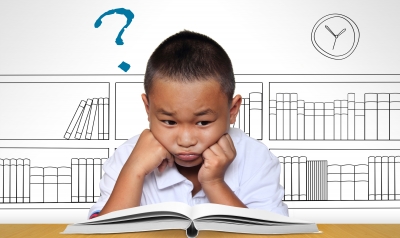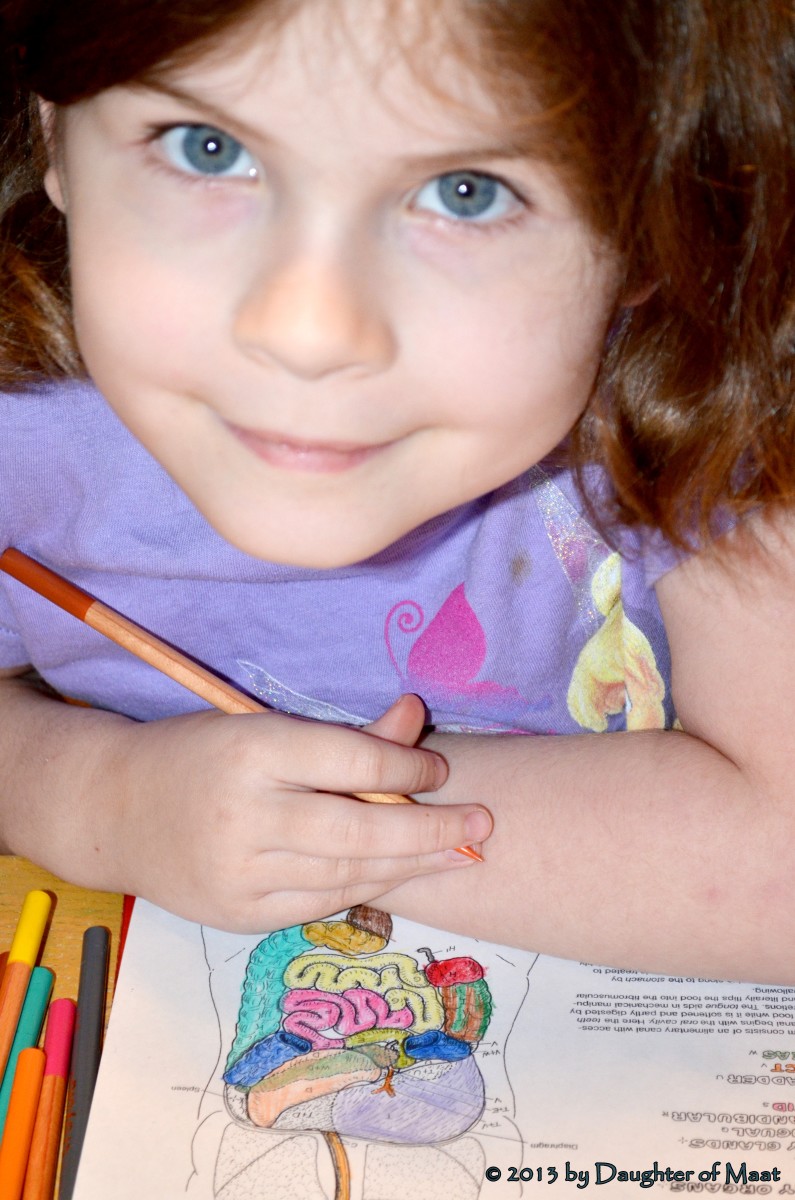Recognise and Help Children with ADHD
Be Prepared for Problems at School

Be Careful When Labelling Children with ADHD
Everyone has pretensions to being an expert in psychology these days and terms like Attention Deficit Hyperactivity Disorder (ADHD) are bandied around so frequently that any child who has behavioural problems, or difficulties at school risks being labelled. Whether you are a teacher or parent be careful not to make that mistake. However, if you know a child you feel might have ADHD take time to examine all aspects of the child’s behaviour before jumping on the ADHD bandwagon.
How to Recognise ADHD Symptoms in Children
What Signs to Expect in a Child with Attention Deficit Hyperactivity Disorder?
You may recognise several symptoms in a child with ADHD. Unfortunately, they are symptoms common to all children at some time or other, so it can be difficult to ascertain ADHD for sure. Symptoms may include:
- Regularly daydreaming;
- Trouble with paying attention;
- Difficulty following through on instructions and seemingly not listening;
- Often has problems organizing tasks or activities;
- Frequently forgetful and misplaces objects, such as books, pencils or toys;
- Often fails to finish schoolwork, or other tasks;
- Easily distracted;
- Often fidgets or squirms;
- Trouble staying seated and usually in constant motion;
- Extremely talkative;
- Often interrupts or intrudes on others' discussions or games;
- Frequently has difficulty waiting for his or her turn.
Factors to Bear in Mind When Dealing with a Child with ADHD
When dealing with children with ADHD always remember that they struggle in the classroom and are often judged harshly by both adults and peers for their poor academic performance. Constant failure and criticism leads to poor self-esteem and children with ADHD are likely to have difficulty interacting with peers and adults.
Common Problems Faced by Parents of Children with ADHD
One way in which children with Attention Deficit Hyperactivity Disorder are recognisably different is in the way in which they have more accidents and injuries of all kinds than children without the disorder. They have conduct disorders which manifest themselves by antisocial behaviour such as stealing, fighting, destroying property, and causing harm to animals and people. This problem can lead to an increased risk of alcohol and drug abuse and other delinquent behaviour as the children age, unless strategies for control are put into place.
Other Risks Connected with ADHD
Children with ADHD are known to be at increased risk of getting:
- Learning disabilities, in areas of understanding and communication,
- Anxiety disorders causing overwhelming unease, tension and deteriorating of the symptoms of ADHD until the anxiety is treated and under control,
- Depression, which is frequently experienced by children with ADHD,
- Bipolar disorder with depression and manic behaviour,
- Oppositional defiant disorder, which is negativity, defiance and hostility aimed at figures of authority,
- Tourette syndrome.
If You Suspect ADHD Prepare to Visit a Doctor
In the section below is a checklist that you can complete and take to your health practitioner. These are essential points to consider:
- Symptoms and difficulties your child has at home or at school;
- Personal information, major stresses or recent life changes;
- Medications, including vitamins, herbs or supplements, that your child is taking;
- Past evaluations and results of formal testing;
- Questions to ask your child's doctor.
Checklist to Assess the Likelihood of a Child Having ADHD
This checklist below is a useful tool to assess whether a child is likely to have ADHD. It is included here for you to get an idea of the areas with which you should be concerned. It can be found at: http://www.cdc.gov/adhd
This form is available at the website. It can be filled out by a teacher, parent, or anyone you trust to have good judgement who is in close contact with the child, and taken to the health advisor.
Child’s name:____________________________________ Child’s age:________ Today’s date:____________
Inattention
Six or more of the following symptoms of inattention have been present for at least 6 months to a point that is inappropriate for developmental level:
Often does not give close attention to details or makes careless mistakes in school work, work, or other activities;
Often has trouble keeping attention on tasks or play activities;
Often does not seem to listen when spoken to directly;
Often does not follow through on instructions and fails to finish school work, chores, or duties in the workplace (loses focus, gets sidetracked);
Often has trouble organizing activities;
Often avoids, dislikes, or doesn't want to do things that take a lot of mental effort for a long period of time (such as school work or homework);
Often loses things needed for tasks and activities (e.g. toys, school assignments, pencils, books, or tools);
Is often easily distracted;
Is often forgetful in daily activities.
Hyperactivity / Impulsivity
Six or more of the following symptoms of hyperactivity-impulsivity have been present for at least 6 months to an extent that is disruptive and inappropriate for developmental level.
Often fidgets with hands or feet or squirms in seat when sitting still is expected;
Often gets up from seat when remaining in seat is expected;
Often excessively runs about or climbs when and where it is not appropriate (adolescents or adults may feel very restless);
Often has trouble playing or doing leisure activities quietly;
Is often "on the go" or often acts as if "driven by a motor";
Often talks excessively;
Often blurts out answers before questions have been finished;
Often has trouble waiting one's turn;
Often interrupts or intrudes on others (e.g., butts into conversations or games).
Visit your Health Advisor

What to Ask Your Doctor
It is so easy to visit a doctor and forget key questions you should have asked while in consultation. This is especially likely to happen if you are apprehensive and agitated. Prepare questions and make a list to lessen the risk of remembering all the things you wanted to ask when you are on your way home. Here are a few basic questions you may wish to ask:
- What other possible causes, other than ADHD, could there be for my child's symptoms?
- Does my child need any tests?
- What treatments, if any, do you recommend?
- What are the alternatives?
- How can I manage other health conditions my child has?
- Does my child need to see a specialist?
- Is there an alternative to the medicine you're prescribing for my child?
- Does the medication have any side effects?
- Can you recommend websites or printed materials?
Keep a writing pad handy and jot down more questions if and when you think of them, prior to the time of your appointment.
What Type of ADHD Does Your Child Have?
As indicated by the two areas on the checklist above there are two different types of ADHD.
If diagnosed with ADHD your child may be diagnosed as predominantly inattentive type ADHD where the child has six or more symptoms from the inattention list. Such a child will seem to get along with others and sit quietly but is actually not paying attention.
On the other hand your child may be diagnosed as hyperactive-impulsive type ADHD. If that is the case he, or she, will have at least six signs and symptoms in the area of hyperactivity and impulsivity. As such, the child may formerly have been thought to have emotional or disciplinary problems.
Finally, there is a third type, which is combined-type ADHD where a child has six or more symptoms from impulsive and six or more from inattentive behavioural areas.
Children with ADHD Need Personal Attention

Five Ways to Help a Child with ADHD
One of the single most important ways in which you can help a child with ADHD is to maintain a strongly organised routine in their daily lives. It is important that everyone involved in the child's care acknowledges and supports the child's need for order.
- Schedule: Always maintain the same routine every day, waking-up and going to sleep at the same times. Homework, outdoor play, and indoor activities should all be scheduled. It is best kept on a bulletin board or the refrigerator, where changes can be written in with good notice if possible.
- Organize items. Clothing, toys and backpacks should all be kept in the same place.
- Use organizers. Stress the importance of writing down assignments and bringing home the necessary books. Use organizers to help.
- Make Rules. Children with ADHD need the security of consistent rules to which they can adhere.
- Give praise or rewards for following rules. Look for good behaviour, and praise it.









